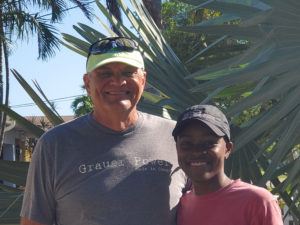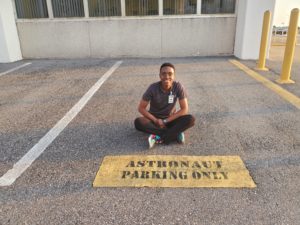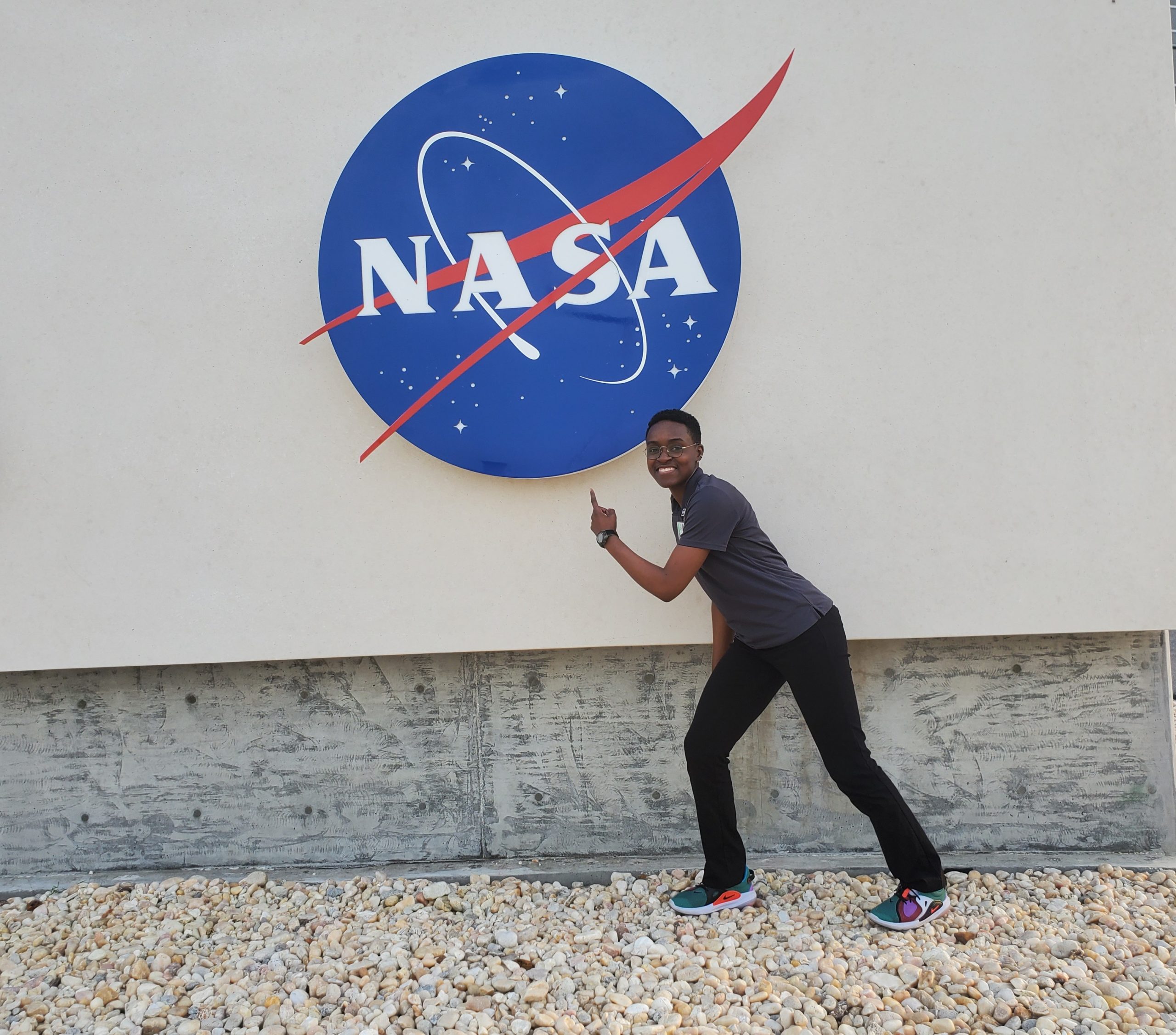Kristen Peagler, third-year DVM student, recently completed a six-week internship with NASA at the Kennedy Space Center in Florida. This experience has been the jumping-off point for a series of opportunities with NASA, as Peagler will participate in an aerospace medicine clerkship with the agency in the coming year. She is the first veterinary student and the youngest participant to be accepted into the program.

Dr. Bielitzki and Peagler
It all began with a phone call to NASA’s Chief Veterinary Officer, Joseph Bielitzki. Working from Kennedy Space Center in Florida, Dr. Bielitzki has worked with NASA since 1996 and oversees the care and use of animals for the entire agency. Peagler has dreamed of working for NASA, but opportunities for veterinary students within the agency are limited if not entirely non-existent. Regardless, in what she describes as a cold call to the highest-ranking veterinary officer in the space program, Peagler sealed the deal on a six-week internship with Dr. Bielitzki himself.
From late February until early April, Peagler was treated to a VIP experience at the Kennedy Space Center. Peagler had a hands-on role during the time she spent in Florida. “I thought, ‘Maybe I should just stand back here and not touch anything,’ but they encouraged me to get involved as much as I wanted,” Peagler explains. “Our sole goal was to make sure the animals’ needs are met at all points—from the ground to the ISS.”
As one could imagine, animal care at NASA is complex. Much like with our human astronauts, special accommodations must be made for animals to be as comfortable as possible on their journey past our atmosphere. “It’s the basic things you wouldn’t necessarily have to think about with gravity on your side,” explains Peagler. “Things like waste, food, moisture content. When you have gravity, everything just falls to the floor. In microgravity, that’s obviously not the case.”
 In planning her time at NASA, Peagler was most interested in seeing what the day-to-day is like for a veterinarian in the space program. During her internship, she was able to experience meetings with international space agencies, assist in the logistics of a space launch, and develop problem-solving skills that will lead her through her fourth and final year at the College of Veterinary Medicine. Peagler succinctly summarizes the qualities necessary for working in space travel, “Contingency, collaboration, compromise, commitment to constant learning, and flexibility are essential.”
In planning her time at NASA, Peagler was most interested in seeing what the day-to-day is like for a veterinarian in the space program. During her internship, she was able to experience meetings with international space agencies, assist in the logistics of a space launch, and develop problem-solving skills that will lead her through her fourth and final year at the College of Veterinary Medicine. Peagler succinctly summarizes the qualities necessary for working in space travel, “Contingency, collaboration, compromise, commitment to constant learning, and flexibility are essential.”
Peagler will return to NASA in October, for an aerospace medicine clerkship at Johnson Space Center in Houston. This program is developed for medical students, so Peagler’s experience will be tailored to her veterinary background. During the four-week program, Peagler will dive deeper into the science of space travel attending classes and tours of the facility while performing research which will be presented at the end of the experience.
We will keep in touch with Peagler and provide an update to this story after she has completed her clerkship.
